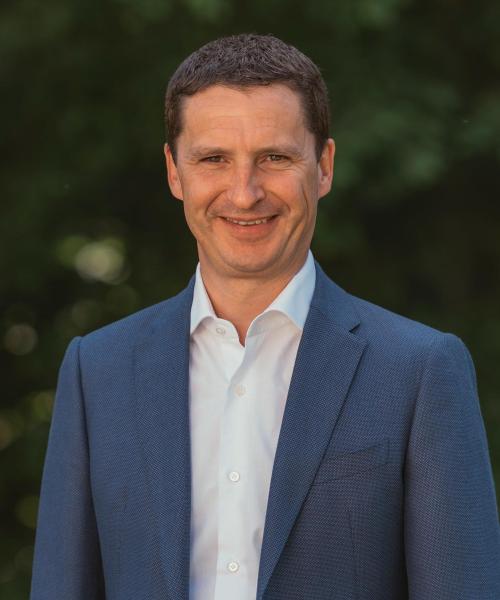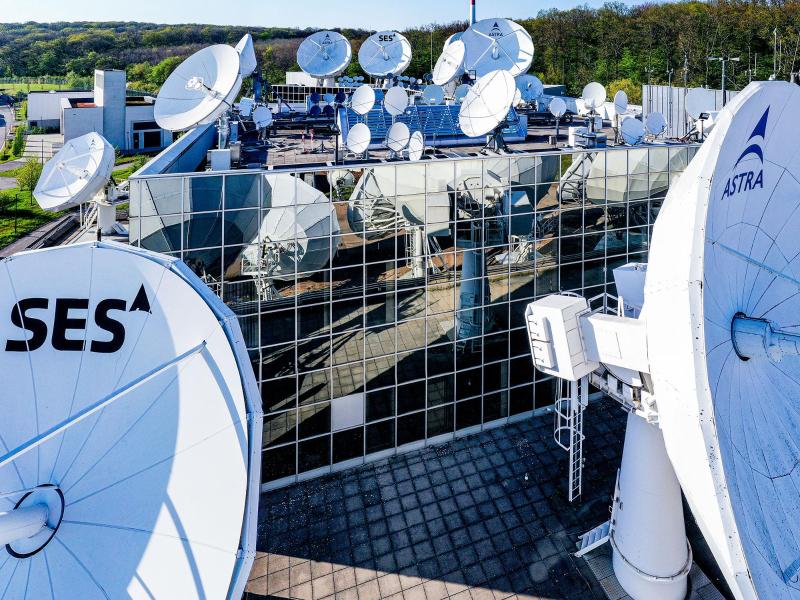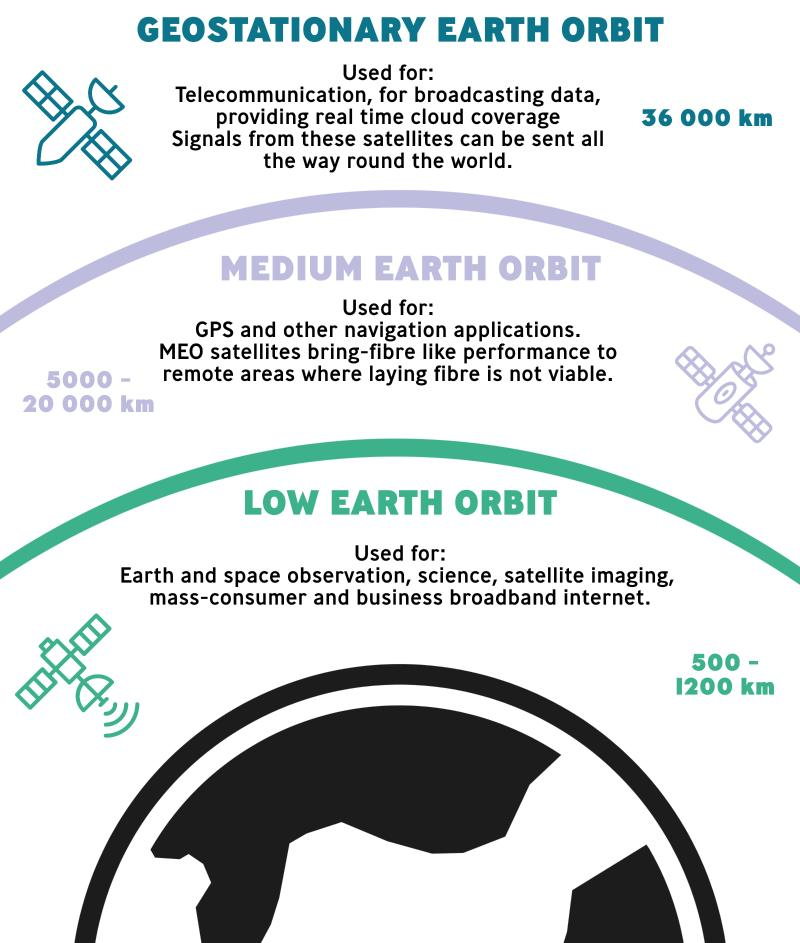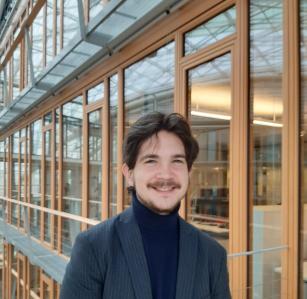Satellites are part of our everyday lives. Three new satellites from a Luxembourg company will bring better broadband and streaming services in Europe, Africa, and Middle East
Surrounded by Belgium, France, and Germany, Luxembourg is famous for its ancient medieval castles, scenic landscapes, green valleys, and of course for hosting the headquarters of the European Investment Bank. But Luxembourg is also a leading hub for the growing space industry, with more than 50 companies and research labs operating in the country.
On the outskirts of a small town in eastern Luxembourg lies the world’s leading satellite operator, SES. Its headquarters can be found in Betzdorf Castle, which previously belonged to the Grand Ducal family of Luxembourg. With a fleet of over 70 satellites, the company is delivering high-quality video and data virtually everywhere to everyone on the planet.

Senne Van Nieuwenborgh
“We were the first commercial satellite operator in Europe. When we established our company in 1985, there was nothing similar,” says Senne Van Nieuwenborgh, the global head of treasury, insurance and risk management at SES. “Today, we serve more than one billion people and distribute about 8 000 TV channels.”
The European Investment Bank is helping SES procure three satellites with a €300 million loan, signed in January this year. The new satellites will deliver advanced broadcast and broadband services in Western Europe, Africa, and the Middle East.
- Read how a Bulgarian company makes space more accessible to scientists and entrepreneurs around the world
Better broadband and connectivity
They are tens of thousands of kilometres from us, but satellites play an important role in our everyday lives. We use them to communicate with our families and relatives, to watch programmes on TV and digital devices, to get news about global issues, or to work from our homes. They also make it possible for us to carry out tasks as varied as navigating our car, making contactless payment for our coffee, or spotting an approaching natural disaster.
Satellites bring fast, reliable internet and broadband to people and companies, enabling them to provide goods and services anywhere across the globe. At the same time, increased satellite connectivity can improve access to education and public services, bridging the digital divide and fostering social development.
SES’s three new satellites also have important economic and social dimensions. Operating at the orbital slot of 19.2 degrees East, two of the three satellites, ASTRA 1P and ASTRA 1Q, will deliver broadband connectivity and video services to 176 million households in Europe. “This is 60% of all households that have a television set on our continent,” says Van Nieuwenborgh.
Located at the orbital slot of 57 degrees East, the third satellite, SES-26, will provide connectivity to the Middle East and Africa. With only 33% internet penetration, Africa is the least connected continent on Earth. The Middle East has a similar problem, with many countries lacking broadband infrastructure.
- Read about an impact investment pioneer backing companies that are good for society and the environment
Supporting space pioneers and Europe’s autonomy
Sending things into space is expensive. It can take several years and hundreds of millions to build and launch a satellite.
“There are many hurdles that you have to overcome to put satellites into space,” says Van Nieuwenborgh. “First, you need to build them and acquire a launch vehicle. Then, you need to send them into orbit, where they will be deployed to provide services for the next years.”
The European Investment Bank’s financing will ease SES’s costs for the design, procurement, and launch of the three communication satellites. Acquired from the manufacturer Thales Alenia Space, another leading European player in space tech, some of the new satellites will be digital and managed by software, enabling in-orbit adjustment to SES customers’ demands.

The loan to SES is the largest provided by the EIB to a Luxembourg-based company
The project will strengthen Luxembourg’s competitiveness and Europe’s leadership in the strategically important space technology sector. “Recent history and ongoing conflicts remind us that building a European sovereign space network is crucial,” says Van Nieuwenborgh. “While Luxembourg is a small country, it is definitely punching above its weight and clearly a global leader in this area.”
SES’s new satellites contribute to reaching the targets of the EU space programme 2021-2027, which is designed to foster the development of the European space industry, reinforce European autonomy in areas of strategic importance, and promote the role of the European Union as a strong global actor.
“Investment is crucial to give a good competitive edge to European companies,” says Piermario Di Pietro, a loan officer at the European Investment Bank who worked on this loan. “By supporting SES, we are helping the development, launch and operation of next generation European satellites.”
Meet the orbits
SES operates the world’s only multi-orbit constellation of satellites. The company combines satellites, which operate at both the geostationary (GEO) and medium earth orbits (MEO), to offer reliable and comprehensive services.
“GEO provides reach and high reliability for users that don’t need superhigh throughput and are not latency-sensitive,” says Christian Kohr, a lead engineer on digital infrastructure at the European Investment Bank. “MEO takes things to the next level for use cases where speed and throughput are non-negotiable, handling up to 10 times more throughput per link than GEO.”

The multi-orbit system makes it possible for SES to expand the footprint of mobile network operators and enterprises into regions and markets unserved or underserved by terrestrial networks.
“Connecting the unconnected is our mission,” says SES’s Van Nieuwenborgh. “As part of Luxembourg’s emergency.lu project, we deployed satellite services in the aftermath of the earthquake to provide connectivity for first response and doctors in Turkey.”
